by REV. PATRICIA VAN GELDER
Chaplain’s Address
Cobden Branch 550
Royal Canadian Legion
Remembrance Day Ceremony
November 11, 1918 was a Monday. And, in a railway carriage 60 kms north of Paris, France, the Armistice that would end WWI was signed.
The terms were actually agreed to six hours earlier than the official start and the first article of the terms was that fighting would stop at 11 a.m. That has always seemed especially chilling to me – the agreement that it would be acceptable to continue killing each other for another 6 hours. Of course, there were practical reasons for the delay. First and foremost, word had to get out. Six hours … then stop fighting.
And back home? When did word reach them? 11 a.m. in Paris, France is 5 a.m. in Cobden and we can imagine families, just beginning their day, or perhaps even roused from bed with the news. The war is over! Thanks be to God!
But, surely word had got out before that. Sometime during that wonderful – horrible – six hour gap, the telegraph lines must have been humming. I’ve never heard any stories about that but I imagine that communities gathered to wait and to hope and to celebrate. Other than the small children, I don’t think there was a lot of sleeping that night. Praying – yes. Sleeping – no.
Sometime between 10 p.m. on November 10th and 5 a.m. on November 11th. I imagine the people came together. Perhaps in the churches, because that’s what people did. In times of crisis. They gathered at the church. And it was the church bells that drew them together.
In most communities, when you wanted news to get out quickly, you rang the bells. Telephones were rare but just about every church had a bell. And they rang them so that people would know that something important had happened. Perhaps one church started … and another picked it up … and the bells rang. And, hard on the heels of the sound, came the news, passed from person to person. The war is over! Or it soon will be. Count the hours. Count down the minutes. It’s peace! Thank God!
My personal connection with WWI takes me to Glace Bay, Nova Scotia. My maternal grandmother’s 3 brothers served overseas. Howard was killed at Vimy. Bullard was missing in action, presumed dead at Passchendale. Alex came home.
I wonder when my family heard the news. Did the church bells ring shortly after 10 p.m. the night before? Or was it early on the 11th? … 4 a.m. or shortly after? Could they hear the bells from home? Or did a neighbor bang on the door with the news? Did they gather at the church early on the 11th? Or spend the night before sitting around the wood stove in the kitchen? Whispering … because it was that kind of night … praying …
This year, in 2018, churches all over the country are marking this day with the ringing of bells. There’s an event later this afternoon at the Anglican Church in town, centering on the Ringing of the Bells. Because it’s 100 years. And also because the war to end all wars … wasn’t. WWII. Korea. Vietnam. Afghanistan. The list goes on … and on.
And so the bells ring again today. For memory. And for peace.


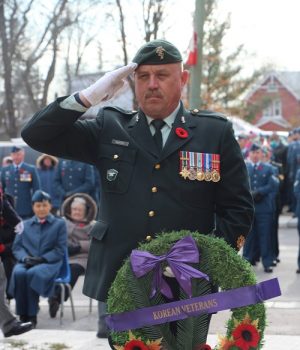






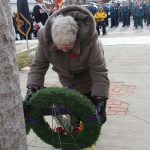




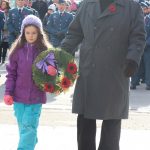

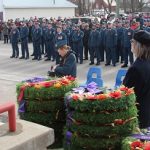


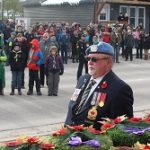
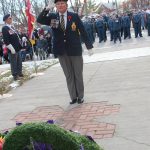
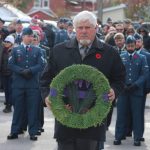
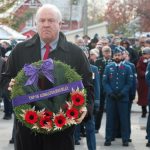
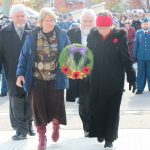
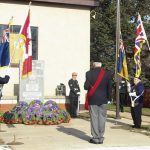













![Kenopic/Smith Auction [Paid Ad]](https://whitewaternews.ca/wp-content/uploads/2018/10/advertising-100x75.jpeg)

